Top Books for Launching a Startup
If you’re thinking about launching a startup and have no idea where to begin, turn first to those that have founded a startup themselves. Whether they failed or succeeded, startup...
If you’re thinking about launching a startup and have no idea where to begin, turn first to those that have founded a startup themselves. Whether they failed or succeeded, startup founders are quick to share their lessons learned from undergoing the unpredictable, competitive and challenging journey of founding a tech startup.
There’s valuable advice to be gained from other startups and founders on their way to success, and books are a great place to start learning. Books offer a useful approach to understanding the reality of what it takes to run a business before you decide to take on that reality for yourself.
Below is a list of the best books to read before launching a startup.
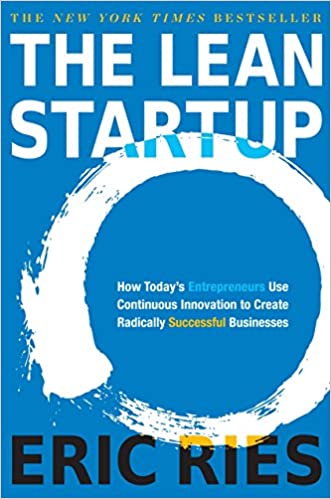 The Lean Startup is a must read for any aspiring tech startup founder. In The Lean Startup, Eric Reis uses his own experience from his failed business to highlight the do’s and don’ts of building a startup. The world is in the midst of a technological age and innovation is advancing from every possible direction. Reis illuminates the need to move quickly in tech business so as not to get lost among the myriad of innovations.
The Lean Startup is a must read for any aspiring tech startup founder. In The Lean Startup, Eric Reis uses his own experience from his failed business to highlight the do’s and don’ts of building a startup. The world is in the midst of a technological age and innovation is advancing from every possible direction. Reis illuminates the need to move quickly in tech business so as not to get lost among the myriad of innovations.
Among some of the topics Reis addresses are noble management, increased efficiencies, and rapid prototyping. The reality is, many eager founders are working with minimal resources, maximum constraints and a large number of potential challenges. The Lean Startup is a guide to navigating current economic and competitive conditions on your way to success.
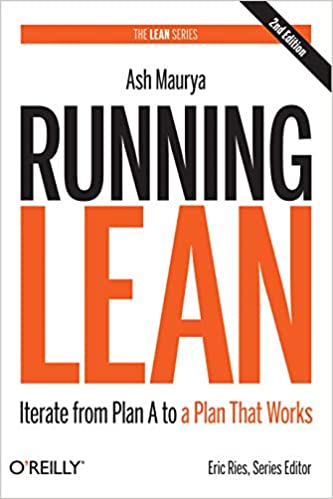 Inspired by Eric Reis’ The Lean Startup comes Ash Maurya’s Running Lean. Where The Lean Startup walks the reader through the lean mythology, Running Lean provides an action plan to actually run a lean business. Among many key takeaways, Maurya makes sure to capitalize on the risk involved in running a business and things one can do to eliminate that risk. Maurya also emphasizes on the importance of focusing on the problems rather than the solutions. One must fully understand the problems a business is facing and all its implications to effectively solve it. If a business focuses too much on the solution, important components may be forgotten about that add value for the customer.
Inspired by Eric Reis’ The Lean Startup comes Ash Maurya’s Running Lean. Where The Lean Startup walks the reader through the lean mythology, Running Lean provides an action plan to actually run a lean business. Among many key takeaways, Maurya makes sure to capitalize on the risk involved in running a business and things one can do to eliminate that risk. Maurya also emphasizes on the importance of focusing on the problems rather than the solutions. One must fully understand the problems a business is facing and all its implications to effectively solve it. If a business focuses too much on the solution, important components may be forgotten about that add value for the customer.
Bottom line: Running Lean is an excellent read if you’re looking to launch a startup from scratch and then make pivots in order to run a more efficient and effective business. While Running Lean is impactful on its own, Maurya’s approach is very effective when it’s preceded by The Lean Startup.
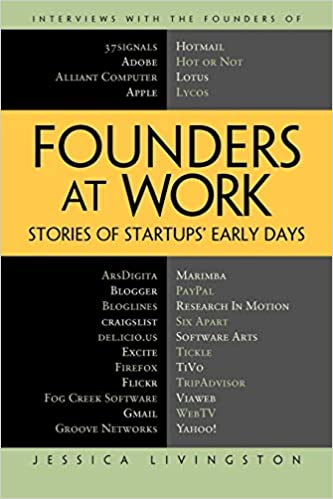 Founders at Work: Stories of Startups’ Early Days is a collection of starting-out stories featuring widely known and successful companies like Paypal, Hotmail and Apple. The reader gets an inside look at what the beginning of the journey was like for those who are now regarded as celebrities and millionaires, when they were just ordinary people with an idea. The reader sees their careers and lives unfold as they apply their unique ideas to a business model and navigate the various trials of founding a tech company.
Founders at Work: Stories of Startups’ Early Days is a collection of starting-out stories featuring widely known and successful companies like Paypal, Hotmail and Apple. The reader gets an inside look at what the beginning of the journey was like for those who are now regarded as celebrities and millionaires, when they were just ordinary people with an idea. The reader sees their careers and lives unfold as they apply their unique ideas to a business model and navigate the various trials of founding a tech company.
Founders at Work is less of a guide or advice book and more of an insight into the reality and difficulties faced by companies in their early days. Author Jessica Livingston creates a space for readers to act as a fly on the wall to some of the biggest CEOs and founders in the tech industry. Regardless of whether or not you are interested in business, Founders at Work is engaging and a worthwhile read.
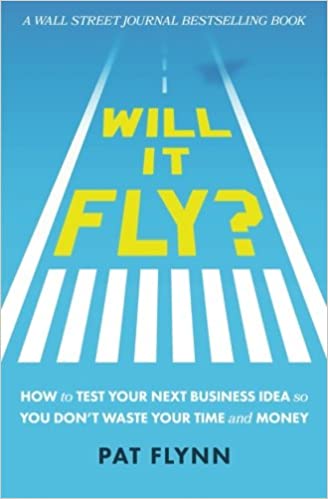
WIll it Fly? by Pat Flynn explores exactly what it takes to launch a business. A founder’s biggest fear is to have a great idea and work tirelessly to start a business just to see it flop. Will it Fly? dives into how to create a business that fits your skills and goals, how to know what your customers are looking for and how they make decisions, and how to pre-sell your product before it’s on the market.
Flynn includes action-based examples, small-scale litmus tests and real world case studies to ensure the founder has all the tools they need to form a business plan. While having an innovative product is all good and fine, one must also have direction and purpose when it comes to running a business. Will it Fly? is a valuable read for those who are serious about founding a startup and contains useful information for people who are otherwise interested in business.
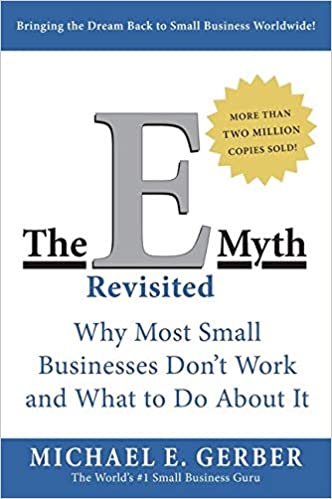 You want to start a successful business, but you’re only one person — and even CEOs need a day off. The E-Myth Revisited by Michael E. Gerber offers advice for systemizing and building a business plan that enables employees to run the business without the CEO present. In his book, Gerber addresses a very important distinction for entrepreneurs to note: the difference between working on your business and working in your business. Say you need a vacation, you get sick, or you want to retire and would like your creation to outlive you. It’s essential that you work on your business so your company has the tools and systems in place to grow and succeed.
You want to start a successful business, but you’re only one person — and even CEOs need a day off. The E-Myth Revisited by Michael E. Gerber offers advice for systemizing and building a business plan that enables employees to run the business without the CEO present. In his book, Gerber addresses a very important distinction for entrepreneurs to note: the difference between working on your business and working in your business. Say you need a vacation, you get sick, or you want to retire and would like your creation to outlive you. It’s essential that you work on your business so your company has the tools and systems in place to grow and succeed.
This book is useful for founders and executives laying the foundation for a company or for those that have been with a company for a while. Either way, E-Myth Revisited is forward looking and provides both tools for success and insightful business advice.
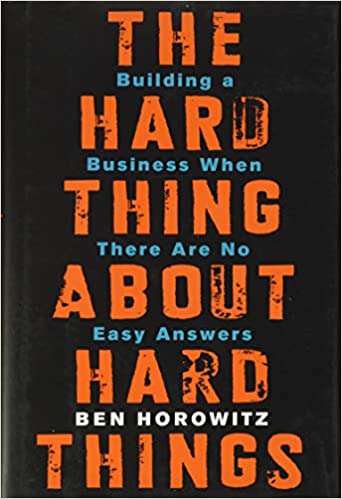
Unlike many books about founding and running a business, Ben Horowitz’s The Hard Thing About Hard Things addresses the unpleasant, uncomfortable, and inevitable things that one experiences as the founder of a business. The book discusses topics from laying off employees, to office politics, to tackling your own inner demons as a CEO and a person in power. Horowitz takes us through his own journey as a co-founder and CEO of Opsware (previously Loudcloud) and offers advice that he has accumulated through life experiences and mentors.
The Hard Thing About Hard Things is a valuable read for early age startup founders, established CEOs, and ideators alike. Horowitz not only takes you through all the aspects of starting a business from the ground up, but also through buying, selling, and investing in a business you started. Horowitz also includes personnel stories about balancing life inside the office of a CEO and life outside the office as a husband and human. Bottom line, The Hard Thing About Hard Things offers great insight into the many hardships and dilemmas that CEOs deal with everyday.
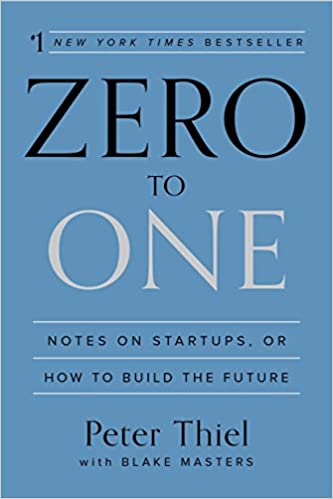
From one of Facebook’s first investors and the founder of Paypal comes Zero to One by Peter Thiel. Thiel challenges the reader to think out of the box and explains that you don’t have to fight the competition to be a leader in your industry — just be an outside thinker. He walks you through how to take a unique idea, think through it completely, and then apply it to a business model and assess its profitability. This book is ideal for tech startup founders and can be a useful guide for anyone who is seeking insight on how to make their vision a successful enterprise.
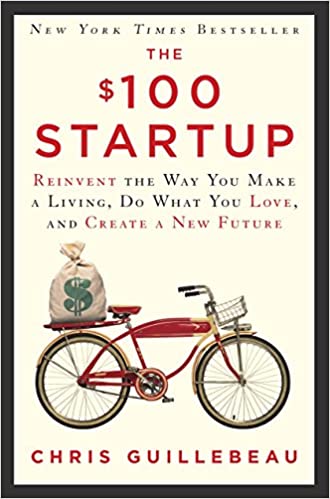 Just because you don’t have a million dollars in your back pocket doesn’t mean you can’t start and run a successful startup. The $100 Startup by Chris Guillebeau examines 50 case studies of successful entrepreneurs who started with very little money. Chris Guillebeau points out the factors in each case study that led that founder to success. Spoiler alert: it wasn’t excess funding. The $100 Startup is all about leveraging what you have to achieve what you want. Whether you have an ample amount of money or not, this book is a great guide for acting wisely with your money and getting the most out of your business.
Just because you don’t have a million dollars in your back pocket doesn’t mean you can’t start and run a successful startup. The $100 Startup by Chris Guillebeau examines 50 case studies of successful entrepreneurs who started with very little money. Chris Guillebeau points out the factors in each case study that led that founder to success. Spoiler alert: it wasn’t excess funding. The $100 Startup is all about leveraging what you have to achieve what you want. Whether you have an ample amount of money or not, this book is a great guide for acting wisely with your money and getting the most out of your business.
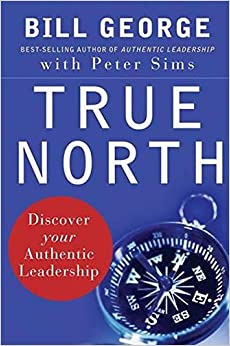 In True North: Discover your Authentic Leadership, Bill George points out that “there is no such thing as an instant leader.” However, knowing how to work on your leadership style and what being a leader is are essential in one’s journey to authentic leadership. George explains that authentic leaders, which are the most effective leaders, are not those who strive to be an ideal leader and follow the archetypes of past CEOs. So rather than try to emulate CEOs and founders before you, focus on the goals and achievements of the company and try to motivate employees to reach those goals.
In True North: Discover your Authentic Leadership, Bill George points out that “there is no such thing as an instant leader.” However, knowing how to work on your leadership style and what being a leader is are essential in one’s journey to authentic leadership. George explains that authentic leaders, which are the most effective leaders, are not those who strive to be an ideal leader and follow the archetypes of past CEOs. So rather than try to emulate CEOs and founders before you, focus on the goals and achievements of the company and try to motivate employees to reach those goals.
True North covers five dimensions needed to possess authentic leadership, all of which can be learned and built on. The five dimensions are: purpose, practicing solid values, heart, relationships, and self-discipline. As an aspiring founder, understanding what a leader is and how to achieve authentic leader status will be vital to your company if you wish to grow and succeed.
About Savannah Burns: Savannah is a Business Development Associate for Swyft, which is a tech PR firm in Austin and Houston and a top digital marketing and PR agency in Denver since its founding in 2011. Swyft recently opened a satellite office where it offers tech PR in San Francisco. Swyft was also listed as one of the top tech PR agencies in Texas by the B2B services review site, Clutch.co.